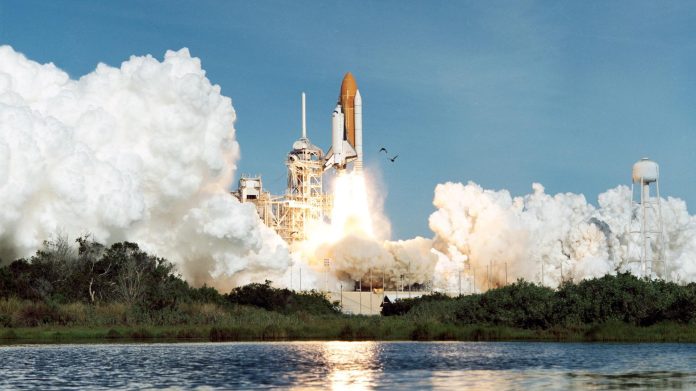Scott Jones
Privatisation, cuts and horrible managers. All familiar in the world of capitalism and factors that even a government organisation whose remit is ‘out of this world’, like Nasa, is not immune to. They are factors which led to the Columbia disaster in 2003, resulting in the death of seven astronauts – the subject of the BBC documentary: The Space Shuttle That Fell to Earth.
The documentary is, in part, a moving tribute to those who lost their lives, featuring interviews with family members and home video footage of their training. It is also a hard-hitting look at what led to the disaster – brought out most strikingly by interviews with those involved in the space programme at the time who tried to raise concerns, but were ignored or ‘shot down’ by Nasa’s quasi-military top-down hierarchy.
A hierarchy which failed to investigate properly a piece of foam that detached itself during take-off, damaging the left wing, meaning the space shuttle fatally disintegrated on re-entry. Nasa tops then tried to deflect from the cause in the aftermath, even when it became known that this was a dangerous long-term problem for the space shuttle programme since the 1980s.
After an earlier disaster when the Challenger shuttle exploded soon after launch in 1986, Nasa tried to cover up fundamental flaws in the shuttle’s design. Then, under US President Bill Clinton, Nasa brought in private contractors to cut costs.
In 1996, the running of the shuttle programme was handed over to United Space Alliance, set up by private companies Rockwell International and Lockheed Martin. Nasa gave them $6 million in bonuses for every flight that stayed up for its full mission, with penalties if it did not. For every dollar slashed from the budget, the company received 35 cents. Workers were laid off then re-employed on a part-time basis, without benefits.
A few years earlier, in 1999, the Columbia itself suffered a near miss during a launch. The New York Times said then: “years of deep budget cuts in the shuttle programme – cuts that had shed more than 10,000 engineers, technicians and quality control employees – were potentially imperilling the lives of astronauts.”
Some of the interviewees talk about how the astronauts gave their lives for humanity, and as well as exploring space, they were carrying out important experiments that could be applied to improve life on earth. Like all organisations and industries, Nasa and other space agencies should be fully funded, publicly owned and democratically managed and controlled by the working class, to ensure that space is explored and utilised, safely, for the good of all. A socialist world is possible, and so is a socialist universe.







